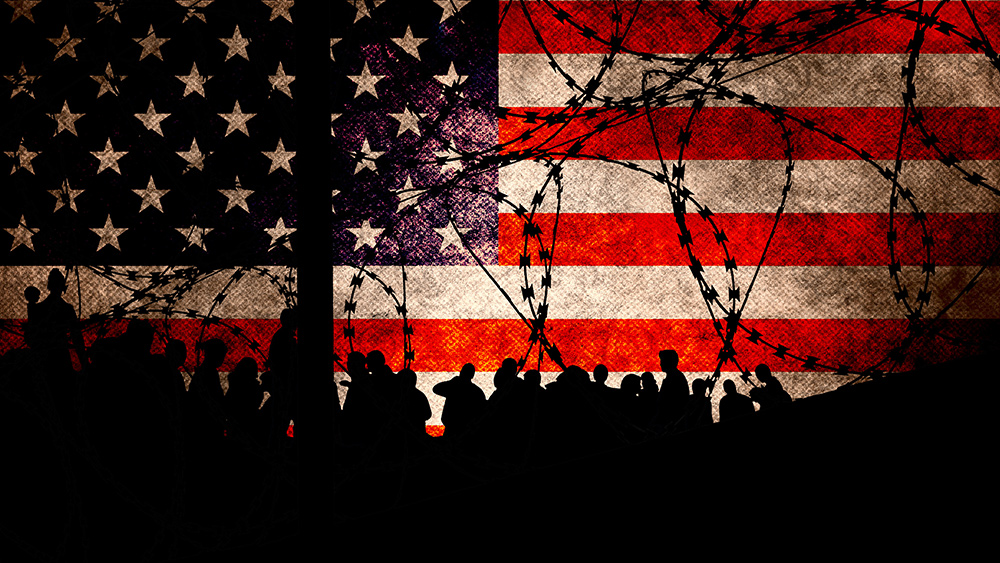Trump administration ends legal status for 500,000 migrants, orders self-deportation or arrest
- The Trump administration is revoking legal status for over 500,000 migrants from Cuba, Haiti, Nicaragua and Venezuela (CHNV) who entered under a Biden-era parole program.
- The revocation effectively ends the work permits and deportation protections for migrants from the aforementioned nations.
- The move aligns with Trump’s strict enforcement approach, contrasting Biden’s expansion of legal pathways. Public polling shows majority support for deportations, but mass removals may pose logistical and humanitarian challenges.
- Affected migrants have until late April to self-deport or secure alternative legal status (e.g., asylum or TPS); those who remain risk arrest and removal.
- The CHNV parole program launched in 2023 allowed vetted migrants with sponsors to enter legally, aiming to reduce illegal border crossings. Trump officials call it exploitative and harmful to U.S. workers.
The administration of President Donald Trump is revoking the legal status of more than 500,000 migrants from Cuba, Haiti, Nicaragua and Venezuela (CHNV) who entered the U.S. under a Biden-era parole program, marking one of the most aggressive immigration enforcement actions since Trump returned to office. The policy shift, effective in late April, terminates work permits and deportation protections for these migrants
The decision, announced Friday, March 21, targets individuals admitted under the CHNV parole program, a Biden administration initiative designed to curb illegal border crossings by offering legal migration pathways. Critics, including Trump officials, have dismissed the program as an attempt to “make illegal immigration legal,” while supporters argue it successfully reduced chaotic border surges.
Launched in early 2023, the CHNV parole program allowed migrants from Cuba, Haiti, Nicaragua and Venezuela to enter the U.S. legally if they had a financial sponsor and passed a background check. The policy was part of a broader Biden administration strategy to discourage dangerous border crossings by providing regulated alternatives. (Related: Trump administration defies court order to halt deportation of Venezuelan gang members, sparks constitutional showdown.)
According to U.S. Citizenship and Immigration Services (USCIS), parole allows individuals who might otherwise be inadmissible to temporarily stay in the country, without granting formal immigration status. A total of 532,000 migrants entered under CHNV before the program was paused following Trump’s inauguration. However, the Trump administration argues the program was poorly vetted and exploited.
“These programs do not serve a significant public benefit, are not necessary to reduce levels of illegal immigration, and are inconsistent with the Administration’s foreign policy goals,” the Department of Homeland Security (DHS) stated in a notice.
Self-deport or face arrest, DHS warns
Migrants affected by the policy change have 30 days (until late April) to leave the U.S. or secure another legal status, such as asylum or Temporary Protected Status (TPS). Those who remain could face arrest and deportation.
DHS is directing migrants to use the CBP Home smartphone app to arrange self-deportation. But officials warn that enforcement could begin before the deadline for those who haven’t sought alternative protections.
“The termination of the CHNV parole programs, and the termination of parole for those who exploited it, is a return to common-sense policies, a return to public safety, and a return to America First,” said DHS spokeswoman Tricia McLaughlin, who claimed the program undercut American workers.
The move is the latest in a series of immigration rollbacks by the Trump administration, which has already announced plans to phase out TPS for Haitians and Venezuelans and suspend pending CHNV-related applications over fraud concerns. The Biden administration had previously stopped renewing CHNV work permits, directing migrants to apply for other benefits. But Trump’s election abruptly closed those avenues.
Immigration advocates warn the policy will create chaos.
“Revoking protections for half a million people with no clear alternative is cruel and counterproductive,” said Aaron Reichlin-Melnick, policy director at the American Immigration Council. “Many have built lives here – suddenly forcing them out will only destabilize communities.”
Republicans, however, argue the program was an end-run around Congress.
“The CHNV parole was a backdoor amnesty,” said Senator Tom Cotton (R-AR). “President Trump is restoring order to a broken system.”
The revocation of CHNV parole underscores the stark contrast between the Biden and Trump immigration agendas. While Biden expanded legal pathways to manage migration flows, Trump is dismantling them in favor of strict enforcement. With 63 percent of Americans supporting deportations (per a recent Fox News poll), the administration appears to have public backing.
Bookmark InvasionUSA.news for updates on Trump’s tough immigration policies.
Watch the video below where Deputy Chief for Policy and Homeland Security Advisor Stephen Miller reveals Trump got celebrity Rosie O’Donnell to “self-deport.”
This video is from the TrendingNews channel on Brighteon.com.
More related stories:
Trump Administration targets pro-Palestine activist for DEPORTATION, citing “foreign policy threat” in free speech crackdown.
Columbia University student self-deports following visa revocation over pro-Hamas protests.
Trump’s aggressive immigration raids spark controversy and praise.
Sources include:
Modernity.news
CBSNews.com
Brighteon.com
Read full article here


